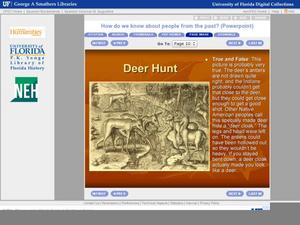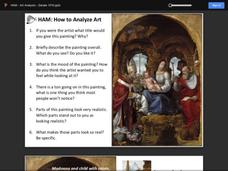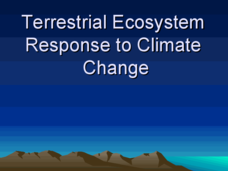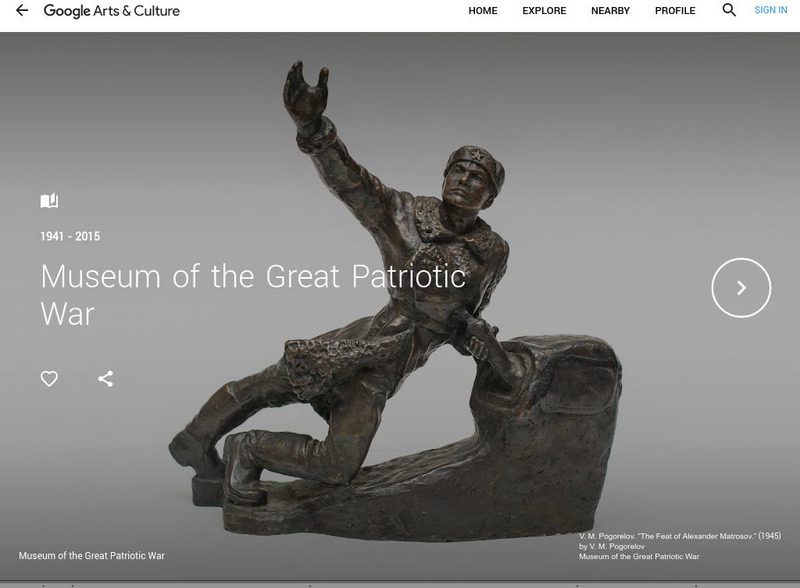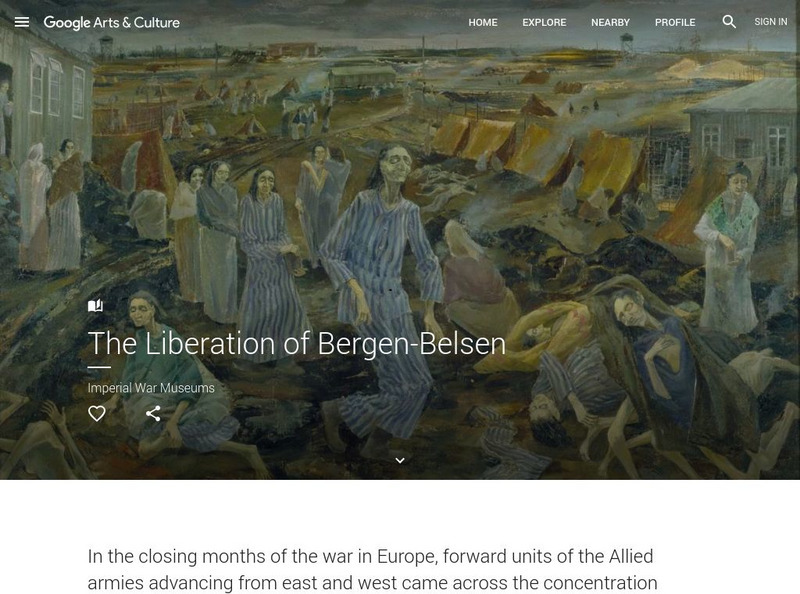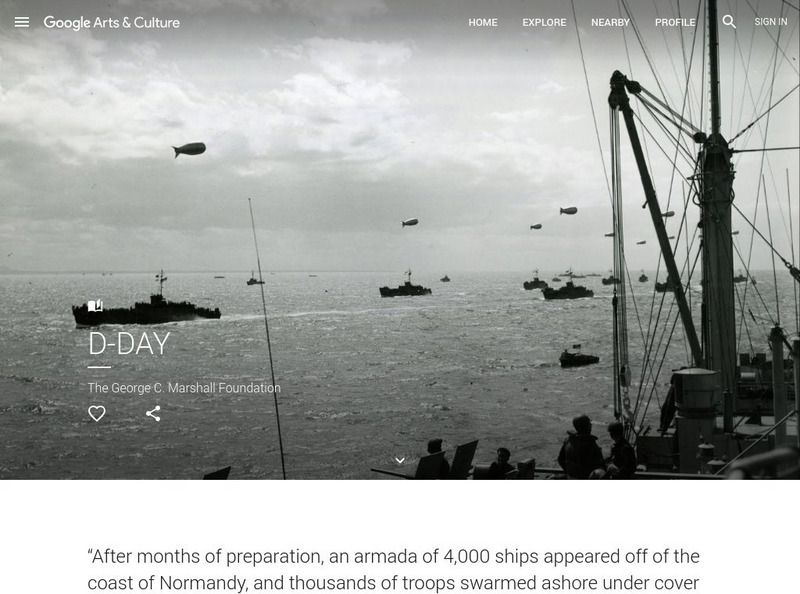Curated OER
How Do We Know About People From The Past?
It's not enough to see or just read a primary source document; one has to analyze them fully to understand their historical implications. First learners are introduced to what primary and secondary sources are, then they read a bit of...
Curated OER
The Dust Bowl
Use this presentation to discuss the causes and effects of The Dust Bowl, or to establish a historical context for the book, The Grapes of Wrath. Found here are images, eye-witness quotes, and some ideas as to the causes and effects of...
Mr. Roughton
How to Analyze Art
How does analyzing art differ from analyzing text? Young historians consider a piece of Italian Renaissance art and practice another type of primary source analysis through a close look and discussion of Bernardo Zenale's...
Mr. Roughton
The Travels of Marco Polo
Were the stories of Marco Polo's travels and interactions with the Mongols actually true? Using an excerpt from the book The Travels of Marco Polo, your young historians will answer guiding questions to discuss the accuracy and...
Warren County Public Schools
Citing Textual Evidence
By using explicit textual evidence, individuals can strongly support their ideas and opinions. The presentation suggests in order to use explicit textual evidence, one must state their idea, cite evidence in the text that led...
Curated OER
Terrestrial Ecosystem Response to Climate Change
An extensive investigation of the Earth's climate changes awaits your environmental science classes. This top-notch presentation begins by looking at the history of Earth's climate and then predicts the impact on each major terrestrial...
National Energy Education Development Project
Exploring Nuclear Energy
Every 18–24 months, nuclear power plants shut down to remove their used uranium fuel, a radioactive waste. Show learners how energy is made and used around the world and then focus on the United States' usage. Viewers then specifically...
US National Archives
National Archives: Congress Creates the Bill of Rights I
This is the first PDF in a four-part series on the Bill of Rights. This part focuses on the history and chronology of the passage of the Bill of Rights. Vivid pictures, primary source documents, and a timeline are provided. [PDF]
US National Archives
National Archives: Congress Creates the Bill of Rights Iia
Ths is the second PDF is in the series Congress Creates the Bill of Rights. This part focuses on the debate between the Federalists and Anti-Federalists on questions surrounding passage of the Bill of Rights. Short biographies, pictures,...
Google Cultural Institute
Google Cultural Institute: Desegregation at Little Rock Central High School
When state and local authorities fail to uphold the Federal Court orders for integration at Central High School, President Dwight D. Eisenhower sent in federal troops to enforce those orders. Using an array of photos and primary source...
Google Cultural Institute
Google Cultural Institute: Museum of the Great Patriotic War
Photographic exhibition showcases primary source documents and artifacts from World War I on display in the Central Museum of the Great Patriotic War.
Google Cultural Institute
Google Cultural Institute: The Liberation of Bergen Belsen
A pictorial history of the liberation of the Bergen-Belsen concentration camp by British troops in April 1945 includes stories, quotes, and primary source documents.
Google Cultural Institute
Google Cultural Institute: D Day
The planning of D-Day on the beaches of Normandy is told through a series of revealing photographs and primary source documents.
Google Cultural Institute
Google Cultural Institute: D Day and the Normandy Invasion
Using photos and primary source documents this visual essay explores D-Day (Operation Overlord), the Allied invasion of Normandy during World War II.
Google Cultural Institute
Google Cultural Institute: Jan Karski. Humanity's Hero
Photographic essay features an array of photos, primary source documents, and first-hand video testimony from the man who attempted to inform the world about the existence of the Holocaust.
Google Cultural Institute
Google Cultural Institute: Revolution in Berlin
Revolution in Berlin is the story of the 40 days leading up to the fall of the wall told in a stunning timeline that includes an array of photographs and primary source documents.
